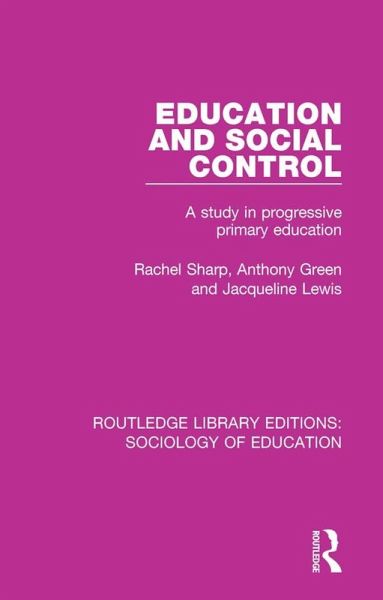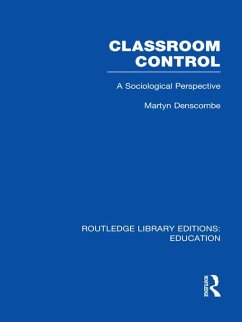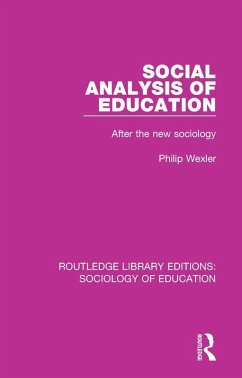
Education and Social Control (eBook, ePUB)
A Study in Progressive Primary Education
Versandkostenfrei!
Sofort per Download lieferbar
32,95 €
inkl. MwSt.
Weitere Ausgaben:

PAYBACK Punkte
16 °P sammeln!
First published in 1975, this book offers a critique of some of the 'new perspectives' in the sociology of education. This is achieved through a case study of a progressive child centred school.The book suggests that a liberal approach to education fails to appreciate how thoroughly a complex, stratified industrial society penetrates the school. It argues that the practice of 'progressive' education may be a modern form of conservativism and an effective form of social control both in the narrow sense of achieving classroom discipline and in the wider sense of contributing to the promotion of ...
First published in 1975, this book offers a critique of some of the 'new perspectives' in the sociology of education. This is achieved through a case study of a progressive child centred school.
The book suggests that a liberal approach to education fails to appreciate how thoroughly a complex, stratified industrial society penetrates the school. It argues that the practice of 'progressive' education may be a modern form of conservativism and an effective form of social control both in the narrow sense of achieving classroom discipline and in the wider sense of contributing to the promotion of a static social order. It cautions against naïve utopian solutions which see the freedom and self-development of the child as an individualized process, unrelated to a social context which may undermine the ideals of freedom and spontaneous self-development.
In addition to offering a study of the implementation of the 'open' approach to child development and pedagogy, the book can also be read as a piece of critical sociology, intended to make the reader look again at the way in which problems have been generated and solutions proposed within sociology and education.
The book suggests that a liberal approach to education fails to appreciate how thoroughly a complex, stratified industrial society penetrates the school. It argues that the practice of 'progressive' education may be a modern form of conservativism and an effective form of social control both in the narrow sense of achieving classroom discipline and in the wider sense of contributing to the promotion of a static social order. It cautions against naïve utopian solutions which see the freedom and self-development of the child as an individualized process, unrelated to a social context which may undermine the ideals of freedom and spontaneous self-development.
In addition to offering a study of the implementation of the 'open' approach to child development and pedagogy, the book can also be read as a piece of critical sociology, intended to make the reader look again at the way in which problems have been generated and solutions proposed within sociology and education.
Dieser Download kann aus rechtlichen Gründen nur mit Rechnungsadresse in A, B, BG, CY, CZ, D, DK, EW, E, FIN, F, GR, HR, H, IRL, I, LT, L, LR, M, NL, PL, P, R, S, SLO, SK ausgeliefert werden.













